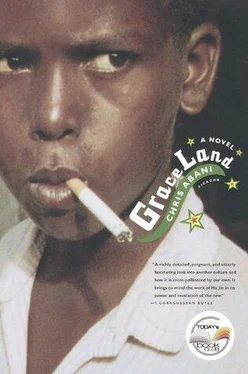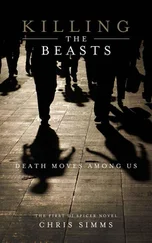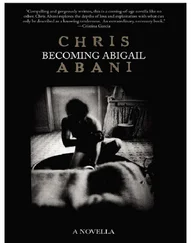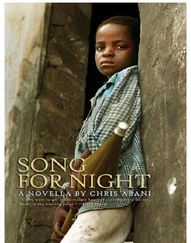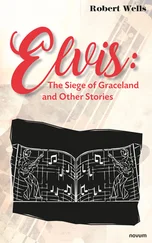He gave directions rapidly and ignored Elvis’s thank-you as he shakily poured more wine.
The food seller who came round at lunch with a steaming cart was never late. There was a loose agreement between her and the workers with regard to credit: as long as she got paid when they did, it was fine. The workers on the construction site were a steady source of income for her.
Lagos was littered with sites like this one, because new high-rise apartment complexes and office blocks were going up seemingly overnight. Elvis was glad for the job, which Benji had gotten for him despite the fact that he had no experience and was not trained in a particular trade. But he was strong and willing, so the foreman had put him to work as a general laborer. His duties included mixing concrete, molding cinder blocks and generally fetching and carrying for the masons and carpenters as needed.
Lunch was Elvis’s favorite time, not because of the small respite from work, but because it was only at lunch that he really saw the people behind the bodies that slogged through the day’s work, tight-lipped and taciturn.
They were a curious mix. Happy, buxom women who carried cinder blocks on their heads to the upper levels, their fat shaking as they exploded into laughter at some joke. There were also masons with cement-dusted bodies and carpenters strutting with leather tool belts and young girls who should have been spending their weekdays in school and their weekends at home, grooming and giggling as they gossiped their naive knowledge of men. Instead they had hands of used sandpaper, the backs wrinkled, the palms scoured and calloused. They sat or lay back in the shade of trees that survived the site clearing, or in the shade of the half-finished building. Invariably there was a radio playing and the station of choice was hotly debated. The younger workers wanted the stations that played Wham! Sade, Duran Duran and Peter Tosh, and the older workers wanted more indigenous music. It was a careful game of give-and-take. What Elvis loved the most, though, was that there was always someone dancing. He would lie back and watch the dancers, a book open, his attention divided between the two activities. Even when he wasn’t concentrating, he loved the musty smell of old books.
He had a crush on one the girls, Angela, who told him that when she took her pay home, her father seized it, blowing it on alcohol. Unsure why she told him, and feeling somewhat helpless, he had pressed a five-naira note into her palm. She looked down at it, surprised, then kissed him quickly, tucking the money into her bra.
He watched her practiced ease as she fended off the groping demands of Okoro, the chief mason, who reached out and grabbed her breasts as she passed him. A smack across the face, received in good spirits, put him in place. But Elvis fumed silently. She came and sat down beside him.
“Hey, Elvis,” she said.
“Why do you let him touch you like that?” he said.
“You dey jealous?” she asked.
He ignored her.
“Listen, if I fancy him, I go pretend say I no see him hand. Dat na extra money.”
“Shut up,” Elvis said softly. “That is sleazy.”
She was silent for a while, and he glanced at her, trying to read her face.
“No, Elvis, not like dat. If I want I go let am touch me, no be sleazy thing, na practical thing — like feeding goat or tending chicken. Is only you men dat make it more dan dat,” she said finally. Then, getting up, she walked over to where the older women sat.
Heading home from work, Elvis crossed the lagoon and went for a walk under the sweeping flyovers. A shantytown had grown underneath them peopled by petty traders, roadside mechanics, barbers, street urchins, madmen and other mendicants. He paused to watch, noting that despite the streetlights coming on around the National Stadium across the way, and the head- and taillights of the traffic that marked night’s approach, the energy of the bridge city was unflagging. He bought a bottle of Coca-Cola from a child hawker and sipped slowly, his eyes following the child’s fading figure as she called out: “Coca-Cola! Is a cold! Come buy!”
He often wondered how he would frame moments like this if he were a director making a film. What shots would he line up? Which wouldn’t make the final edit, ending up on the cutting-room floor? It frustrated him to think this way. Before he read the book on film theory he had found in the secondhand store, movies were as much magic to him as the strange wizards who used to appear in the markets of his childhood. Now when he watched a movie, he made internal comparisons about what angle would have been better, and whether the watermelon shattering in the street of a small western town was a metaphor for death or a commentary about the lack of water.
He took in the young girl leaning against a lamppost. Her lithe body in the pool of light appeared somehow inappropriate. And the tire vulcanizer who was sitting before his wavering flame, waiting for a customer and reading a book on quantum physics through cracked glasses with total concentration — probably a professor down on his luck, Elvis thought. He watched a thief stalking a potential victim with all the stealth of a tiger. The intended victim, a young woman with a backpack hanging from one shoulder, seemed unaware. When the thief pounced, however, she caught him with a stunning blow across the head, raising her voice to call, “Ole! Ole! Thief!” Everyone around her reacted immediately to the call by throwing any hard object they could. Some young boys chased after the fleeing man. They carried a tire they’d picked from the pile by the vulcanizer. In Lagos, vigilante justice was common, and the popular mode of execution was the necklace of fire — a tire around the neck doused with petrol and set on fire. Luckily, the thief escaped by jumping onto a passing bus, his jeers fading into the distance.
Elvis threw the empty Coke bottle on the ground and turned to continue home. A beggar accosted him, springing out of nowhere, his one eye glittering insanely. The other socket, empty, gaped red and watery as his gnarled claws closed over Elvis’s hands and his mouth opened in a toothless grin. A long scar, keloidal and thick, ran from his neck, up across the empty eye socket and into his hairline. Against the man’s dark skin, it looked like a light brown worm.
“I dey very hungry,” he said.
The beggar took in Elvis’s confusion and labor-dirty clothes and, deciding he wasn’t going to get anything from him, moved off.
Elvis came alive. “Wait!” he called.
The beggar stopped and turned.
“Wait and I’ll share a meal with you,” Elvis said.
The beggar nodded and smiled. Together, they walked over to an open-air buka, sat down on the rough benches next to night workers and policemen on break and ordered. Elvis studied the beggar as they ate together in silence. His nostrils were distended, perhaps from years of ramming snuff up them with his thick forefinger. His hair was a mess of matted brown dreadlocks, yet he was clean, and his old clothes appeared freshly washed. His dreadlocks had a smattering of white, and Elvis guessed he was in his late forties or maybe early fifties.
After dinner he looked up at Elvis. “Tanks.”
Elvis nodded.
“What’s ya name?”
“Elvis.”
“Like de musicman?”
Elvis nodded. “And you?”
“Mhm, well, I am known as de King of de Beggars,” he replied. “But my parents name me Caesar Augustus Anyanwu. Big name for poor man is good magic.”
“Not so good,” Elvis muttered. The King of Beggars laughed, head thrown back, his one eye caught savagely in the light. A big rat scurried across the floor, stopping to turn a curious stare on Elvis, causing him to shiver. The King noticed it and threw an empty Coca-Cola bottle at it, making it scurry for cover.
Читать дальше
